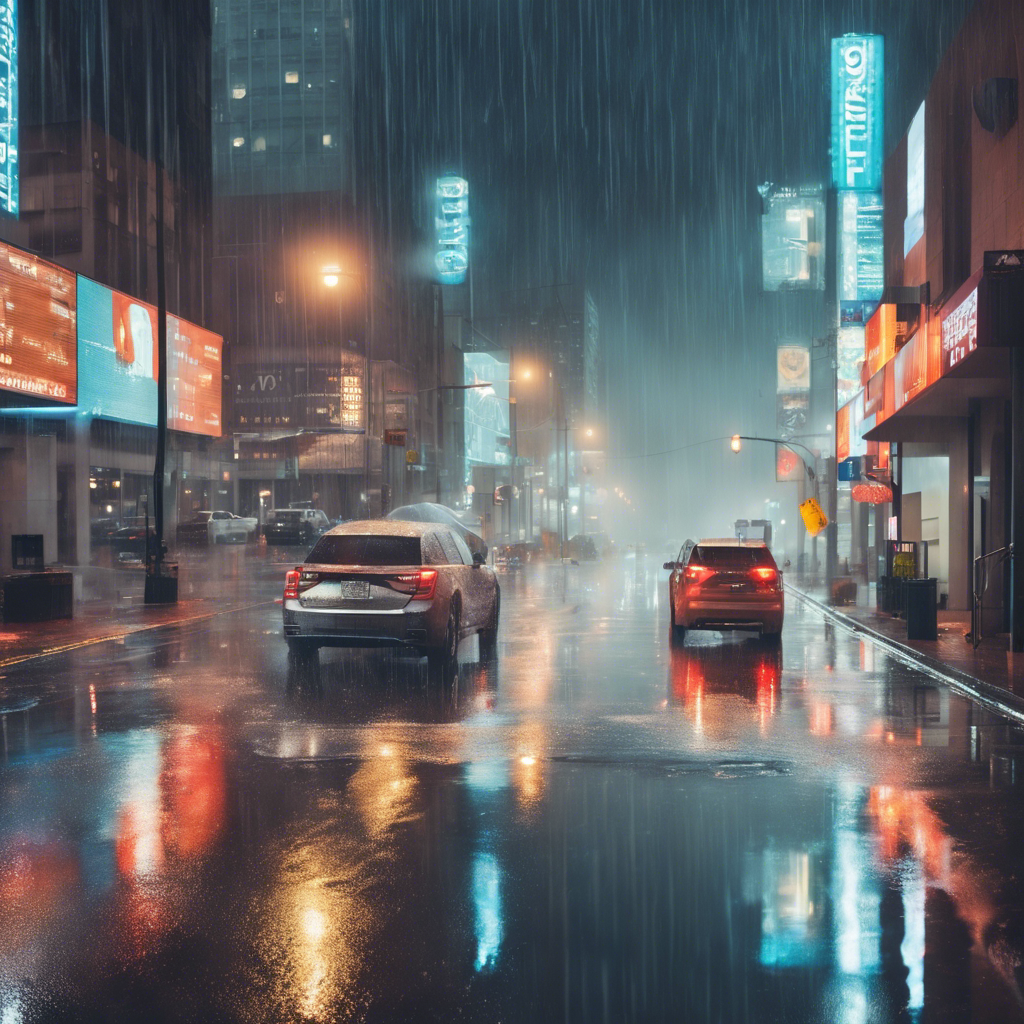Overnight Rain Leads to Ponding and Closures the Day Before Thanksgiving

Philadelphia Roads Closed as Rainfall Causes Travel Disruptions
As travelers prepared to embark on their journeys to reunite with loved ones for Thanksgiving, unexpected rainfall in Philadelphia on Tuesday night caused significant disruptions. The heavy downpour resulted in ponding on several roads, leading to closures and adding an extra layer of complexity to an already busy travel day. This article delves into the impact of the overnight rain, the roads affected, and the challenges faced by travelers as they navigated through the unexpected obstacles.
1: The Aftermath of the Rainfall
The overnight rain in Philadelphia left its mark, causing ponding on various roads across the city. The sudden deluge overwhelmed drainage systems, leaving large pools of water on road surfaces. As a result, several roads became impassable, posing a risk to motorists and pedestrians alike. The Philadelphia Department of Transportation swiftly responded to the situation, prioritizing the safety of the public by closing affected roads until the water subsided and the roads could be deemed safe for travel.
2: Roads Affected by the Ponding
Among the roads hit hardest by the ponding were major thoroughfares such as Market Street, Broad Street, and Vine Street. These heavily trafficked routes experienced significant water accumulation, making it impossible for vehicles to pass through safely. The closures not only disrupted the daily commute for residents but also posed challenges for those planning to travel for the Thanksgiving holiday. The unexpected closures caused traffic congestion in surrounding areas, further exacerbating the already stressful situation for motorists.
3: Travel Challenges on the Eve of Thanksgiving
The timing of the rainfall couldn’t have been worse, as it occurred on the eve of Thanksgiving, one of the busiest travel days of the year. The closures and delays caused by the ponding added an extra layer of frustration and anxiety for travelers. Many found themselves caught in traffic jams or forced to take lengthy detours, jeopardizing their plans to reach their destinations in time for Thanksgiving celebrations. The unexpected road closures also impacted public transportation, with bus routes being diverted and delays experienced on subway lines.
4: City Response and Cleanup Efforts
City authorities acted swiftly to address the aftermath of the overnight rain. The Philadelphia Department of Transportation deployed crews to affected areas to assess the situation and facilitate the cleanup process. Drainage systems were inspected and cleared to prevent further ponding and ensure the safety of road users. The city also utilized social media platforms and traffic alert systems to provide real-time updates to motorists, helping them navigate around the closures and plan their routes accordingly.
5: Lessons Learned and Future Preparedness
The overnight rainfall and subsequent road closures serve as a reminder of the unpredictable nature of weather events and the need for preparedness. City officials are reviewing the incident to identify areas for improvement in terms of drainage infrastructure and emergency response protocols. The lessons learned from this event will help Philadelphia better prepare for future weather-related disruptions and ensure the safety and convenience of its residents and visitors.
Conclusion:
The overnight rain in Philadelphia caused ponding and road closures on the day before Thanksgiving, adding an unexpected challenge for travelers. Major roads were affected, causing delays and frustrations for those trying to navigate through the city. However, the prompt response from city authorities and cleanup efforts helped mitigate the impact of the rainfall. As Philadelphia reflects on this incident, it serves as a reminder of the importance of preparedness and the need for robust infrastructure to handle unexpected weather events.

